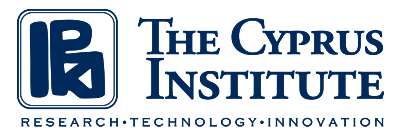AIR-COVID-NETWORK
A network of monitoring points in Nicosia for the timely detection of SARS-CoV-2 in the air
The AIR-COVID-NETWORK project, coordinated by the Cyprus Institute, Climate and Atmosphere Research Center (CARE-C) aims to develop and test the potential of a sampling network for monitoring the presence of coronavirus in busy indoor public spaces (such as airports, shops, restaurants) that routinely integrate exhaled aerosols from tens to hundreds of individuals within the span of a few hours. This Bioaerosol Network aims to monitor and detect the presence of SARS-CoV-2, the virus responsible for COVID-19, within indoor atmospheric environments.
Benefits
Continuous monitoring of the air has the potential of quickly alerting us to risks of local contamination, and can enable the taking of targeted and timely mitigation actions (such as lockdowns and disinfections) to geolocate the presence of new emerging infectious clusters and contain the large-scale spreading of the virus. Networks have already demonstrated their potential to detect airborne viruses within crowded, indoor environments, and the AIR-COVID-NETWORK project plans on leveraging this potential and applying it to the monitoring of the coronavirus.
The approach outlined by AIR-COVID-NETWORK aims to offer a simple and cost-effective solution to complement the time-consuming and expensive random COVID-19 screening tests of large subsets of the population that have been employed so far, as a means to help to more rapidly and effectively monitor and contain the spread of the coronavirus.
| AIR-COVID-NETWORK feature | Added value benefit |
| (Filter) sampling easy to operate | High transferability / replicability |
| Cost-effective samples | Capacity for a dense network |
| High volume sampled | 1 signal for 10s or 100s of individuals exhales |
| Noninvasive / Inconspicuous | Higher acceptability |
| Continuous monitoring for days/weeks/months | Early Warning System of new clusters Increase of the safety of working environments |
| Low operational cost (1 sample for 10s / 100s of individuals) |
Complementary to the swab tests (1 sample for 1 individual) |
Implementation approach
In close collaboration with public departments of the Cyprus Government, field tests, to be performed within SARS-CoV-2 contaminated indoor environments of the Nicosia General Hospital, will allow for the rapid development of an optimal “SARS-CoV-2 filtration unit” and its deployment within a network of several monitoring points in Cyprus.
In more detail, the sequencing of the approach follows the below path:

Field Evaluation of the Sensitivity of the Filter Sampling Units and Validation of the extraction protocol
At the Environmental Chemistry Lab, The Cyprus Institute

Monitoring of emissions of SARS-CoV-2 during clinical protocol
At the Intensive Care Unit, Nicosia General Hospital

High Resolution Size Distribution of SARS-CoV-2
In COVID-19 patient rooms, with authorization from the Ministry of Health

Implementation and Operation of the AIR-COVID-NETWORK Bioaerosol Network
In various indoor environments of Nicosia (e.g. shops, offices, residential buildings)
Collaborators
The project’s collaboration network is led by the Cyprus Institute which is coordinating the project and doing the bioaerosol sampling design. Collaborators also include the Cyprus Institute of Neurology & Genetics, which is contributing PCR analyses of air samples, the Nicosia General Hospital and the Ministry of Health providing support with sampling Qualification and access to clinical protocols, and the Cyprus Civil Defense and the Ministry of Interior offering support for the operation of the Bioaerosol Network.




Funding
The Project CONCEPT-COVID/0420/0014 is co-financed by the European Regional Development Fund and the Republic of Cyprus through the Research and Innovation Foundation









